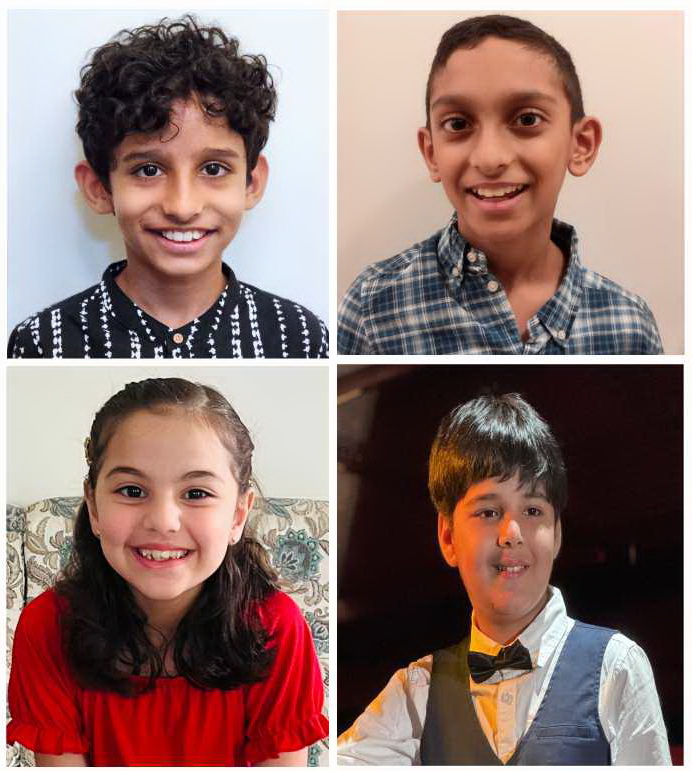Sonam Lodhi tells us about her experiences turning pages for pianists during the concerts.
I became a life member of the Poona Music Society four years ago. I quit my job in the software industry and decided to become a full time musician – to teach piano and to perform. One of the things I felt I could do to become a better musician, was to attend as many concerts as I could. Of course, we have access to a lot of music through YouTube or CDs or DVDs but nothing beats a live concert. Modern technology can never capture the experience of sitting in an audience and watching a performer bring the music to life.
In October 2012, I was approached to turn pages for the Amaya Trio. This was my first concert as a page turner. I was extremely nervous, but the pianist, Batia Murvitz, made me feel at ease and became my friend. We are in touch even today.
Page turning is a lot harder than it seems. I have never rehearsed with any of the pianists. I get to meet them about half an hour before the concert and that’s when I get to see the music for the first time. Very often, these are new pieces I have never heard before. The toughest part is the repetitions – sometimes they choose to repeat certain sections, sometimes they don’t; sometimes you have to turn back or turn ahead more than one page. I have to do all of this without any practise at all.
Baroque or classical period music is easy to follow, but late romantic or contemporary music with changing tempos or changing time signatures is tricky. I remember a concert with a lot of Spanish dance music and the rhythm kept changing and it was all at a very quick pace – so difficult to keep up with!
Sometimes the condition of the scores themselves make page turning even harder. The books could be old with loose pages, or sometimes the binding is such that the can’t see a few bars at the end of the line, or the page keeps flying ahead. I try to help out with this without disrupting the concert.
The really organised pianists (very few in number!) pencil in the repetitions on their music but most of them don’t. The kinder ones remind me about these instructions before they start off a piece, but I can’t count on that. Usually, I have to try to remember the instructions they’ve given me in the brief chat we have had before the concert.
Most of the time, the pianists are very nice. Though they are world-famous musicians, they have no airs about them. A highlight for me was meeting one of my favourite musicians, Maria João Pires. She’s one of the most down-to-earth people I’ve ever met. It was magical to sit beside her.
There are a handful of pianists I’ve met whom I’ve still kept in touch with and it’s wonderful to follow their careers on Facebook – to keep in touch with all the new and exciting music they’re working on, to see the wonderful new projects they are doing and the beautiful concert halls they perform in.
But you do occassionally get the difficult pianist. They don’t like you sitting too close to them and don’t want you standing up to turn the page too early. Very often, they aren’t very fluent with English and other than the basic instructions, we can’t really have any conversation.
Occassionally something happens to make a concert even more memorable. At the Alina Ibragimove and Cedric Tiberghien concert in September 2014, there was a power cut and the generators failed. To keep the audience entertained, Alina played a Bach partita completely in the dark. But even after that piece the electricity wasn’t back and more than 20 minutes had past since the scheduled concert time. Both of them decided to start their concert anyway and perform without lights. Now, in addition to page turning for Cedric, I held my mobile phone flashlight in the other hand, so he could read the music. The lights finally returned at the end of the 12-minute Beethoven violin piano sonata!
I’ve heard stories from other pianists about their bad page turning experiences. One pianist told me that during a very long and slow Beethoven sonata movement, his 60-year-old page turner went off to sleep!
The biggest drawback of being a page turner is that you cannot really enjoy the music. Most of the time I’m focused on page turning and mainly the piano part and I miss out on the experience of hearing the music as a whole. There are times when I feel the music getting overwhelming and I almost drift off into that experience but then I have to remind myself to snap out of it and focus on the page in front of me.
But I don’t have any complaints at all. I get to be on stage and meet these wonderful musicians. I get to observe their scores closely which I would very rarely have done on my own and, yes, attending concerts and page turning in this way, has definitely contributed to making me a better musician.

